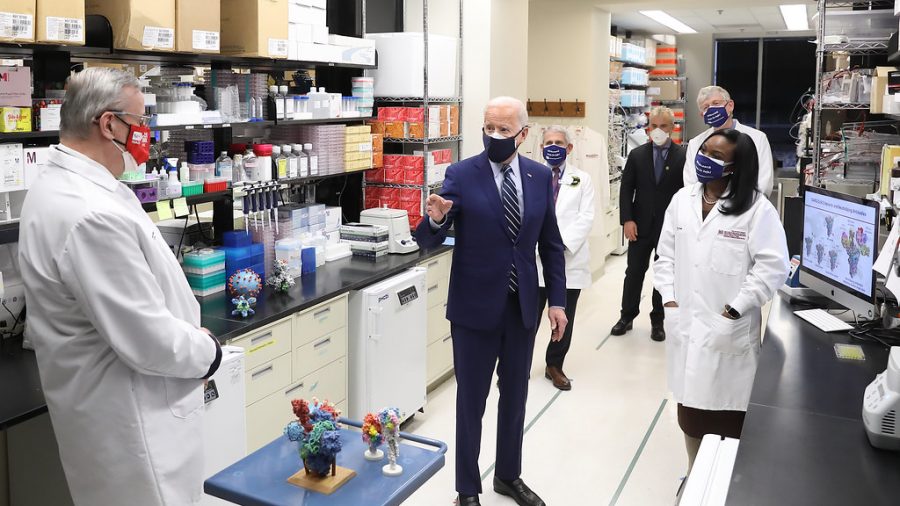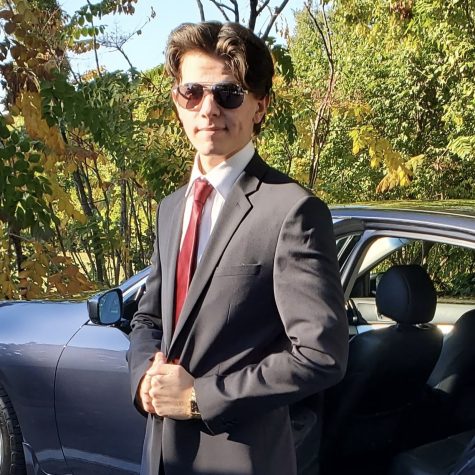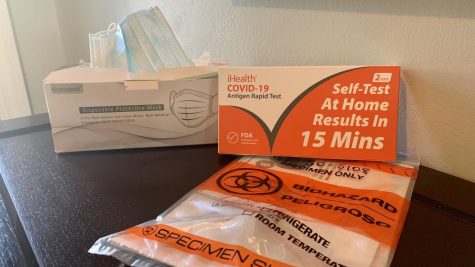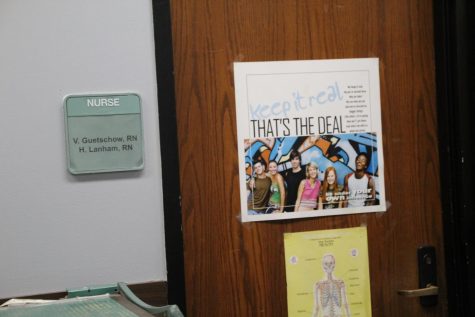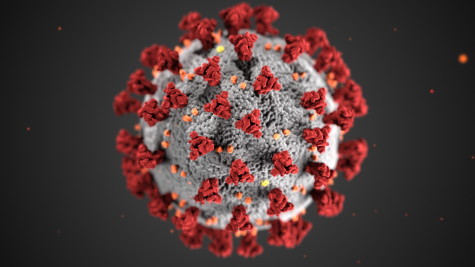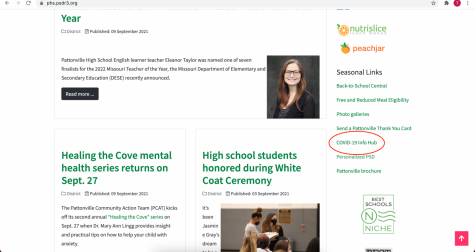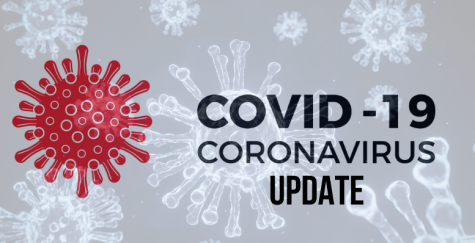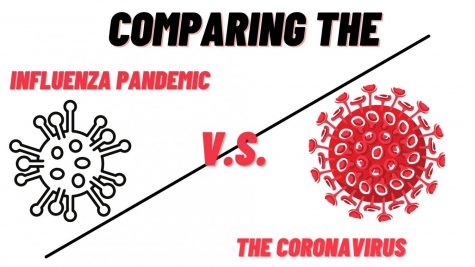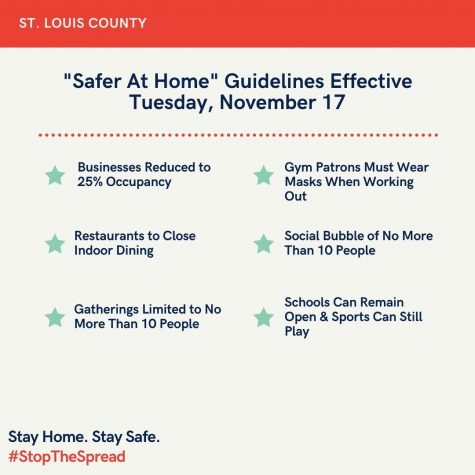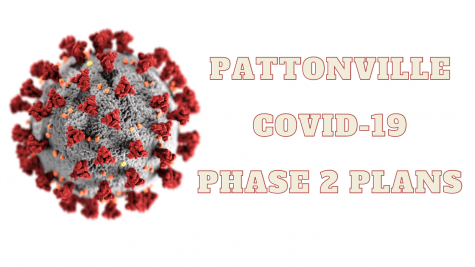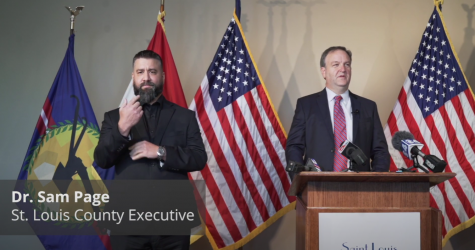Getting the Virus Under Control
President Biden visits NIH Research Center to discuss the COVID-19 vaccines.
May 6, 2021
Across the nation, millions are getting vaccinated by the week. With the FDA having approved three different vaccines in order to prevent and drop the severity of COVID-19, and the Federal government having stepped up their COVID vaccine distribution, many consider the U.S. to be on the right track to getting the pandemic under control.
While there are many who plan on taking the vaccine, there are still those who are a bit weary about it. With this response from the general public, experts across the board are urging people to get vaccinated, if not for themselves, then for others.
In the United States, about 235 million doses of the vaccine have been administered. The Biden administration’s initial goal for vaccine distribution was 100 million vaccinations in just 100 days, however after reaching that goal within just 58 days, they moved their goal to 200 million vaccinations in 100 days. They also accomplished that goal before their 100 day mark, achieving it on their 92nd day. In the state of Missouri, about 3.5 million doses have been administered, and just over 2 million people have at least gotten their first vaccine.
The first vaccine to be authorized was the Moderna vaccine, which the FDA issued an Emergency Use Authorization for on December 18th of 2020. The AstraZeneca vaccine has yet to be approved by the FDA. According to the FDA this is due to the concern that the data being used for the vaccine may have been using outdated information. On average, the vaccines are each about 90% effective against severe disease due to Covid according to Yale Medicine.
As of April 9, anyone 16 and up became eligible across the state of Missouri to receive a vaccine, and as of April 19, anyone 16 and up became eligible to get vaccinated against the Coronavirus nationwide. It is also worthy to note that the vaccine is free to get across the country.
Dr. Anthony Fauci, director of the U.S. National Institute of Allergy and Infectious Diseases and chief medical advisor to the president, had the following to say earlier in the month: “We encourage people very strongly to get vaccinated because these vaccines are highly effective, we know that. So we encourage people, both for their own safety, for the safety of their family and ultimately for the safety of their community and their country to get vaccinated, because the larger proportion of people that get vaccinated, the more quickly you will get the epidemic and the pandemic under control.”
Experts agree that the vaccines that have been approved to be used for Covid have been groundbreaking in terms of how the country is dealing with Covid. The availability has helped some feel a slow return to normal.
Pattonville High School’s iLearn teacher Mr. Harder chose to get the vaccine and reported no problems. “Physically the first vaccination, if I hadn’t had been watching my arm, I wouldn’t have known he’d done it,” Harder said. “He was that good. Emotionally I felt relief. And then I wondered okay… side effects with this one or not? But it was a good feeling. It was a very good feeling.”
Harder felt the shot was worth any potential side effects. “I’m around a lot of students,” Harder explained. “I don’t want to get them sick. I also don’t want to get sick. My parents and my wife’s parents are all still alive and it’s been limited a little bit because I would never forgive myself if I got one of them sick and something bad happened.”
Mr. Harder also said that he did not have any side effects with the first vaccine, however with the second he could feel it sting going in, and that he had a headache on top of feeling tired later that night and into the next morning.
To those who are hesitant, Harder urges awareness of others. “[Getting the vaccine] is truly not that big of a deal,” Harder said. “I do realize some people do have side effects that are more than what I had, but it’s worth it. Please care about others. You know I don’t want to get you sick. I care about you. I don’t want to do that, or my family. I don’t want to get them sick so I think it’s the responsible thing to do as a human being. It’s socially responsible and the morally responsible thing to do.”
Harder is pleased with the distribution. “We far exceeded what they wanted,” Harder said. “They wanted to do a hundred million in a hundred days, and they’re over 200 million and they haven’t even met the 100 days yet. I think overall I’d give it a B plus or A minus at best. It’s never been done before. I think they were able to do some things and figure some things out early. But when it was organized, boy was it organized.”
Harder watched the distribution that Pattonville held and was impressed by the efficiency. “They had appointments and they ended up being 20, 25, or 30 minutes ahead of schedule,” Harder said. “They did a really nice job. I know some places are kind of haphazard or not quite as organized but considering all the things that are going into this I think it’s really been good so I’m pleased overall.”
However, Harder does not believe that the state’s plan was efficient. “I don’t think the state of Missouri did as good of a job as the Federal government did. I ended up getting my shot over in Edwardsville, Illinois. But I’d give them maybe a C level for that. I thought Missouri… it was less organized, less caring, it wasn’t distributed equitably between urban and rural, and I thought it was distributed politically so I’m not happy about that no.”
St. Charles resident Rev. Ray Scholle said that when he got his vaccinations, it was painless. “I didn’t even realize the needle was in my arm, ” Scholle said.
Scholle was also eager to get the vaccine. “The Covid-19 virus can cause mild illness to a devastating illness and even death. Science has proven the vaccine is safe and effective. It saves lives.
“I had no side effects from the vaccination, but even if I did the side effects are nothing compared to getting the virus. So I don’t understand why some people have decided not to take the vaccine because it can save their lives and the lives of others,” Scholle said.
The former Reverend also shared his thoughts on how the Federal government has done in its distribution efforts, and he said, “The distribution of the virus got off to a very slow pace because the Federal government did not take enough injections and the distribution was not well organized in getting it to the states. That changed in January when the government took charge of a centralized distribution effort and dramatically increased the number of vaccines ordered.”
Scholle also felt Missouri’s response was lacking. “Missouri was slow at getting vaccines to the heavily populated metro areas. But with the new approach and efforts of the Federal government, now anyone can get the vaccine, including teens…In order to win the battle against a deadly pandemic it takes a strong centralized government plan and action. Fortunately, we are finally winning but have a way to go.”
Covid-19 had an impact on everyone’s day to day lives, with many having changed drastically because of this virus. While the U.S. was taken over by a once mystery disease, it has now been over a year since this all began and the United States has made drastic progress in controlling the pandemic and allocating the resources needed by the people. They have distributed nearly two and a half million vaccinations primarily in just about three months, have made everyone 16 and up eligible to get the vaccine, and made the vaccination free for anyone to receive.
The vaccine helps prevent the virus from spreading as rapidly due to its effectiveness in keeping the virus under control when being transmitted, and has been proven to work and shown its effectiveness. With all this in mind, this is why government officials, the CDC, many medical experts, and so many others are urging people to take the vaccine if they are able to.

